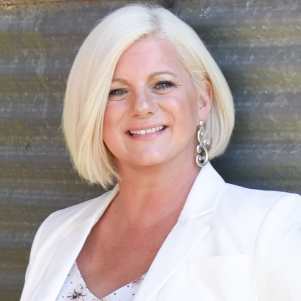Growing up in the South, I understood that evolution was not something discussed in proper company. As part of a deeply religious, literalist, creationist family, I knew evolution was something that was not to be considered for fear of losing one’s place in Heaven. This experience is not mine alone. The South has generally defined itself in the battle for science literacy over the last century as a vocal contingent for anti-science legislation and creationism in the classroom.
Bridging the chasm between evolution and faith
Amanda L. Townley, NCSE executive director, understands first-hand the challenges that educators face in helping students reconcile evolution with their faith.
Classrooms are at the forefront in shifting the paradigm from a world that distrusts science and scientists to one that is capable of and willing to explore the evidence for concepts like evolution.
A large part of the challenge of teaching, or even discussing, evolution in the South, and elsewhere, is tied to the deeply-rooted cultural underpinnings that define the region: largely the predominance of evangelical literalist traditions where evolution is viewed as a direct contradiction to what is seen as the one true word of God. I have walked in both of these worlds, becoming fascinated with science at a young age and experiencing my own worldview shift through my teens and early college years as I explored what I saw as a logical explanation of diversity, even though it conflicted heavily with my personal beliefs and was eschewed by my family. It would have been easier in some ways to walk away from evolution–however beautiful I found it–and pour my love of science into another area of study. But my heart and mind are still deeply rooted in the South. It is the place I grew up, where I fell in love with science, and where my children and their friends are being educated. I maintain a desire to help the next generation discover, as I did, that science is a language they can embrace without losing their faith and that even evolution–what they think is the most problematic area of science–need not scare them off. My personal story of transition from creationist to evolution education researcher and advocate has been complex and winding but has empowered me to be a presence in the middle of a chasm that is often characterized by loud voices shouting at each other from opposite sides.
It is this experience I have drawn on to bridge gaps between accurate science and many religious people's exposure to and understanding of that science. It is this experience that has helped me understand that, regardless of all other elements of a person's worldview, it is imperative that everyone grasp how science works. The key to reaching this goal, in my approach, is recognizing the power of each individual's worldview and seeking not to supplant but rather to add, allowing space for growth, deeper understanding, and coping where there is conflict. My philosophy is to let every single interaction embody sound science—to be an advocate for science education who is empathetic and willing to listen before speaking. One who welcomes all to the table without judgment or condemnation for their beliefs and who perhaps can make a difference in this effort toward creating a society of people willing to truly embrace science, regardless of who they are and whence they come.
Evolution provides a transformative medium for scientific thinking, understanding, and responsive action to blossom, as it represents a true taboo for so many and is complicated by a great many misconceptions and misunderstandings. Not only is it the unifying theory in biology, but it is supported by evidence across disciplines to a level few other theories can boast. Yet that evidence is often overlooked or set aside with comments about evolution being "just a theory" or "unproven." Teaching and discussing evolution opens so many doors to scientific inquiry and understanding. The very heart of what science is, and is not, is captured in conversations about how we know evolution is happening at the micro and macro levels, the inability of science to consider the metaphysical as an explanation of events, and the nature of science as self-correcting in light of evidence.
For many in the United States, the years of primary and secondary education represent the only formal exposure they will have to the sciences. It truly is the front line in efforts to promote understanding and scientific literacy as a whole. Despite decades of legal precedent and widespread scientific acceptance of evolutionary theories, states often omit evolution from the standards to avoid community conflict, and teachers, exercising their autonomy in the classroom, may gloss over or avoid teaching evolution to sidestep possible conflict with students. The result is a wide swath of the population that receives little to no evolution instruction; what is received is often fraught with misconceptions. Classrooms then are at the forefront in shifting the paradigm from a world that distrusts science and scientists to one that is capable of and willing to explore the evidence for concepts like evolution, enhance understanding, and make social decisions that impact all of humankind. While it is impossible to change the world overnight, it is highly possible to make a difference one person at a time. This begins in our classrooms with teachers leading the way.

